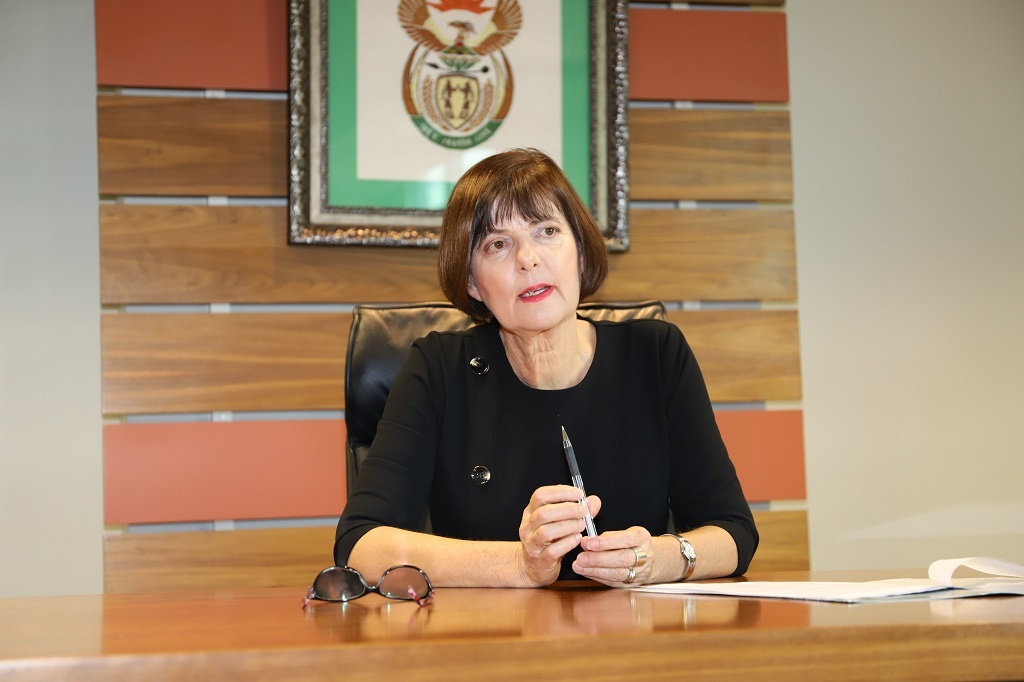
The energy crisis in Europe is not because of failing renewables but rather because of a shortage of supply of Russian gas, says Minister of Forestry, Fisheries and Environment Barbara Creecy.
Creecy was speaking at a Presidential Climate Change Commission meeting on Friday. She was responding to remarks made by City of Johannesburg Mayor Mpho Phalatse about the metro's plans to procure gas for energy.
The City will be issuing requests for proposals (RFPs) from Independent Power Producers this month.
"We will start with gas… then will move to solar energy and will introduce new energy modalities to help us achieve our goals," Phalatse said. The city is trying to offset load shedding and needs an additional 500 MW of power, seeing this as an opportunity to bring renewable energy solutions on board.
Creecy wanted to know if the RFPs would be technology agnostic, considering the cheapest energy price – as the city would rely on this to bolster revenues.
"Energy generation, if you want to make revenue from it, has to be a matter of price. The question is, what energy forms are cheaper than others, so you can maximise your price?" Creecy asked.
"We know that, by and large, renewable generation is cheaper than other forms of generation," she added.
Creecy also pointed to the escalating gas prices amid the Russia-Ukraine war:
On the flip side, Creecy's counterpart Minister of Mineral Resources and Energy Gwede Mantashe, a proponent of coal, has on numerous occasions cast doubt about the reliability of renewables. In an interview with Bloomberg recently, he cited Germany's reversion to coal as a lesson that renewables are not the "saviour" we need.
In response to Creecy's question, Phalatse shared that the city is open to an energy mix.
"We are not married to the idea of gas, but we want to have an energy mix. The motivation for starting with gas is for the baseload. Baseload can either be coal or gas," Phalatse said.
She emphasised that the city has to meet its energy demand – which is increasing given the city's growing population – attracting people from far and wide due to its economic opportunities.
"We need to keep up with the energy demands of the population," she said. Phalatse reiterated that the city would start with gas and follow through with solar and other energy forms.
Commissioner Melissa Fourie, who is also CEO of the Centre for Environmental Rights, questioned the city's choice to include gas in the energy mix, given its expense.
"Why would one do that? If a part of what you are putting in the mix is far more expensive and far more risky?... It really just doesn't make any financial sense to expose the city to that kind of risk, particularly the security of supply."
Both Fourie and Creecy also questioned the reasoning of baseload – which is becoming an outdated concept in the modern energy landscape.
The city has a number of initiatives underway as part of its Climate Action Plan – aimed at achieving carbon neutrality and climate resilience by the year 2050. Among these include increasing the share of renewable energy by encouraging small-scale embedded generation solutions, promoting energy-efficient buildings, improving waste management practices and converting waste to energy, and enabling community gardens that address food insecurity.
It has also approached the Development Bank of Southern Africa to fund a project for electric buses. The city is also discussing establishing a green fund with another development finance institution.

